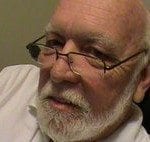BY RICHARD L. FRICKER
 DENVER – This mile high city moves. Downtown is alive with small shops and high dollar chains, bistros and restaurants of every imaginable cuisine. Bicycles, scooters and free public transportation shuttle a continuous stream of office workers and tourists among buildings and coffee shops to home. It appears to be a seamless rhythm of commerce and entertainment.
DENVER – This mile high city moves. Downtown is alive with small shops and high dollar chains, bistros and restaurants of every imaginable cuisine. Bicycles, scooters and free public transportation shuttle a continuous stream of office workers and tourists among buildings and coffee shops to home. It appears to be a seamless rhythm of commerce and entertainment.
Embedded in this continuum of commerce are medical marijuana outlets. These shops are as much a part of downtown as the stadiums and arenas hosting the Broncos, Avalanche and Rockies; they are a part of Denver culture.
There are approximately 1,500 such outlets throughout the state. In addition to establishing medical marijuana as a legitimate business they provide a previously untapped revenue stream for city, county and state governments.
While outlets are, as most businesses, reluctant to provide exact profit numbers they do provide a general idea of monies paid into government coffers. According to downtown outlet operators interviewed, and then extrapolated across the state, medical marijuana generates about $53.5 million in fees and another $150 million in taxes.
Contrary to uninformed speculation, these outlets are not akin to the opium dens of 1800 San Francisco and London. There are no glassy eyed addicts panhandling the streets, or wasted souls with needles in their arms passed out on the sidewalks and alleyways.
Lotus Medical is one such outlet. Owned by former real estate investors Erik Santus and Hung Nguyen, Lotus counts among its client-customers, teachers, lawyers, doctors, housewives, waiters, bartenders and even a religious from time to time.
http://www.youtube.com/watch?v=oOkYKVbsyhs&feature=youtube_gdata
“This is not a happy business,” Hung said. “Many of our cancer clients die. I go to a lot of funerals. But they don’t die after being strung out on prescription pain killers that leave them unable to communicate with their family and friends.”
The medical marijuana is not administered at the outlet. There is no cloud of smoke emanating from the doorway. And not all cannabis is smoked. Many patients can’t smoke.
Lotus, like most other outlets, provides inhalers, ointments, liquids and even chewing gum. The choice is up to the patient as to how and when the marijuana is administered.
Colorado is one of 17 states and the District of Colombia that allow legal marijuana sales. Legislation is pending in another 11 states.
Of the 17 states where sales are legal, 10 approved the measure by a vote of the people, the rest were by legislation signed by the respective governors. New Hampshire passed such legislation only to have the measure vetoed by the governor.
The Denver model is important to Oklahoma because state Sen. Constance Johnson, D-Forest Park, has, as she has every legislative session since 2005, introduced a bill to provide for medical marijuana sales. Her bill has never received a study much less a hearing. http://www.oksenate.gov/news/press_releases/press_releases_2011/pr20110208f.html
The bill says, in greater part, “no physician in this state shall be punished, or denied any right or privilege, for having recommended marijuana to a patient for medical purposes.”
It continues, “Oklahoma Statutes relating to the possession of marijuana and …Statutes relating to the cultivation of marijuana shall not apply to a patient, or to a patient’s primary caregiver, who possesses or cultivates marijuana for the personal medical purposes of the patient upon the written or oral recommendation or approval of a physician.”
This year may be different. The bill rests with the Senate’s Health and Human Services Committee chaired by former prosecutor Sen. Brian Crain. Sen. Crain says he is unenthusiastic about the bill but might entertain the idea of a study of the question. crain@oksenate.gov
The Oklahoma Bureau of Narcotics and Dangerous Drugs spokesman Mark Woodward says the OBN supports the idea of a study. Woodward say OBN wants the public to get the truth about what’s “behind” the medical marijuana issue. Woodard’s remarks fly in the face of what voters, legislators and many law enforcement professionals have to say about the issue.
Law Enforcement Against Prohibition [LEAP] is a 70,000-strong organization made up of former police officers, prosecutors and judges who feel the marijuana war has been misguided and provides no tangible social benefit. LEAP has been directly involved in most states where medical marijuana has become legal.
http://www.tulsanorml.org/news/local-news/2011/hb-1798-signed-by-governor-mary-fallin
If OBN has no objection to a study and even a hearing, then perhaps Sen. Johnson’s day has come. Certainly 28 of the 50 states have felt the issue was worth public debate. And, of course there is the money for a state whose Secretary of Education keeps cutting funding claiming budget shortfalls – $150 million is a lot of jack from a little bud, and that’s only the numbers for “medical” sales.
After all, Sen. Johnson is only asking for a fair study and fair hearing. Fair would mean committee members should be free of predisposed opinions or entanglements with lobby groups that profit from strict marijuana laws. Should a committee member have such entanglements it would be honorable to recuse from the debate.
There are Oklahoma law enforcement officers, prosecutors, former prosecutors and judges that privately see no problem with legal medical marijuana sales. Equally, many feel the marijuana war has gone on long enough. Few are willing to go public in the current Oklahoma political climate, but there is support. A free and fair public debate would harm no one.
– Richard L. Fricker lives in Tulsa, OK and is a regular contributor to The Oklahoma Observer. His latest book, The Last Day of the War, is available at https://www.createspace.com/3804081 or at www.richardfricker.com.









This issue has truely gone on long enough. If medical marijuana is Use For the right purpose and is not abused then this can be more good then harm. This Specially can be good In helping to keep others from getting a contact buzz when using.
I am for legalizing marijuana. Marijuana helps treat a number of medical issues. I
Know first hand the benefits of marijuana. I self medicated with marijuana in the
90’s. Before I smoked marijuana I had a sever learning disorder from a brain injury.
I had social anxiety. I also was dealing with PTSD. Today I am a law abiding citizen
Who has overcame my social anxiety. I no longer suffer affect of PTSD. I’m also a
Student at brown Mackie. So yes I am all for the legalization of personal use
Marijuana. If it is ok to use narcotics to treat other forms of illness there is no
reason marijuana should be left out. I truly be leave I’m able to function in society
Today because of my marijuana use.